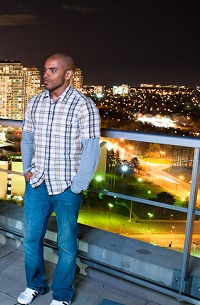When Shifana Khan graduated from university a year ago, she felt pressured to enter the working world right away and to find a suitable boy to marry (to appease the parents, of course). At 22, she wasn’t ready. Instead, she requested to take a year off, picked up a part time job, saved some money and flew off to Tamil Nadu, India, for five months. “This vacation was to help me find myself, allow me to do some soul searching, to figure out what I want to do with my life,” says Khan.
Finding herself wasn’t easy. Being Tamil, Muslim and female, Khan struggled with her unusual identity. Her parents worried that she wouldn’t land a “proper job” in chemical engineering, her program of study, and that she would pass the prime age of marriage (22-25 for women back in India). Many of her friends were either employed, married or studying. She was the anomaly.
After returning to Canada, Khan had a laundry list of things to attend to, which left her feeling helpless and fearful of the future. “That was the moment when my quarterlife crisis started,” she says.
 Many people in their 20s to early 30s experience a period of intense anxiety and uncertainty in life, dubbed a “quarterlife crisis”, in response to the overwhelming transition from young adulthood to adulthood. Signs include self-doubt, identity issues, fear of failure, indecisiveness, feelings of helplessness, isolation, and a lack of — or search for — direction and purpose. Other symptoms are constant comparison of your life to other people’s or to societal norms. Some find it difficult to let go of their childhood. Even after attaining your dream job, relationship and home, you may come to realize that it did not bring you the satisfaction you thought it would. “Is this all there is?” you might ask, feeling restless because you expected life would be different.
Many people in their 20s to early 30s experience a period of intense anxiety and uncertainty in life, dubbed a “quarterlife crisis”, in response to the overwhelming transition from young adulthood to adulthood. Signs include self-doubt, identity issues, fear of failure, indecisiveness, feelings of helplessness, isolation, and a lack of — or search for — direction and purpose. Other symptoms are constant comparison of your life to other people’s or to societal norms. Some find it difficult to let go of their childhood. Even after attaining your dream job, relationship and home, you may come to realize that it did not bring you the satisfaction you thought it would. “Is this all there is?” you might ask, feeling restless because you expected life would be different.
Unlike our parents’ generation, those of Generation Y have more options than we know what to do with. In an article titled “Welcome to Your Quarterlife Crisis” published in Eye Weekly in 2009, Kate Carraway summarized the stress of quarterlifers: “They can’t make any decisions, because they don’t know what they want, and they don’t know what they want because they don’t know who they are, and they don’t know who they are because they’re allowed to be anyone they want.” Call it the Zeitgeist, if you will, and it’s here to stay.
 Twenty-three-year-old business systems analyst Parthiban Manoharan experienced his quarterlife crisis at 18, during his first two years of university. Manoharan began doubting all aspects of his life, from school to career choice to his physical appearance. “You start feeling unworthy,” he says, “and there was something wrong within yourself.”
Twenty-three-year-old business systems analyst Parthiban Manoharan experienced his quarterlife crisis at 18, during his first two years of university. Manoharan began doubting all aspects of his life, from school to career choice to his physical appearance. “You start feeling unworthy,” he says, “and there was something wrong within yourself.”
For Khan, redefining who she was alleviated the impact. She started changing her priorities, weeding out unnecessary influences and replacing them with positive ones. “I cleaned my Facebook of people that I don’t really talk to. Added pages and people that were influential. Reactivated my Twitter page and added people whose quotes gave a boost of inspiration every time I read them,” she says. “I turned to religion (Islam) to guide me. I have always been a spiritual person, but I realized that I had lost touch with the spiritual side during my years in university.”
Spirituality also helped guide Manoharan, enabling him to see life in a broader sense. “Now and then certain insecurities do come and go, where having a positive thought process helps me get out of it sooner,” he says. Turning to friends and family helped the most for Manoharan. Additionally, reading Paulo Coelho’s The Alchemist brought in new energy, he says.
In Alexandra Robbins’ book, Conquering Your Quarterlife Crisis, the author offered other advice on how to cope: Ask yourself what you do not want in order to figure out what you do. Dissect your dreams for what is realistic for now and consider other options. Deconstruct your timeline, as deadlines can be readjusted. Pay attention to the direction your self leads. Use your resources, be flexible, and take risks.
These are just a few tips on navigating the hazy road ahead.
—Mimi Szeto

 Guest Contributor
Guest Contributor






